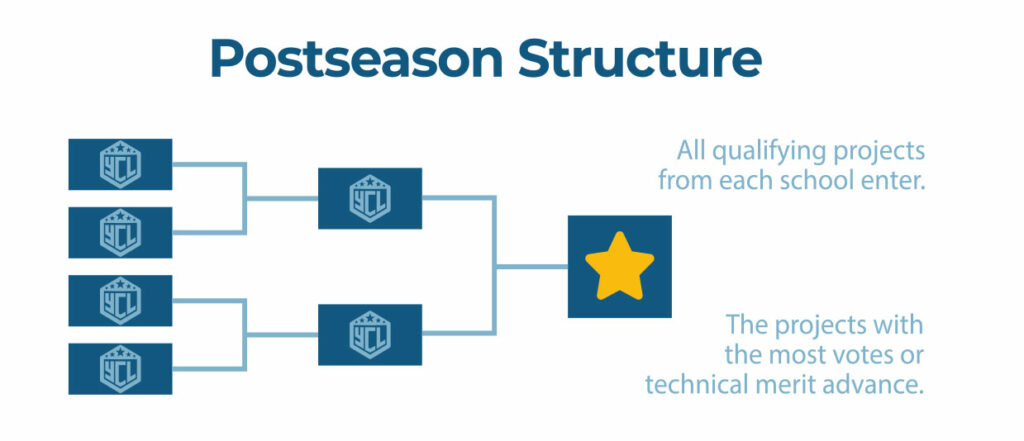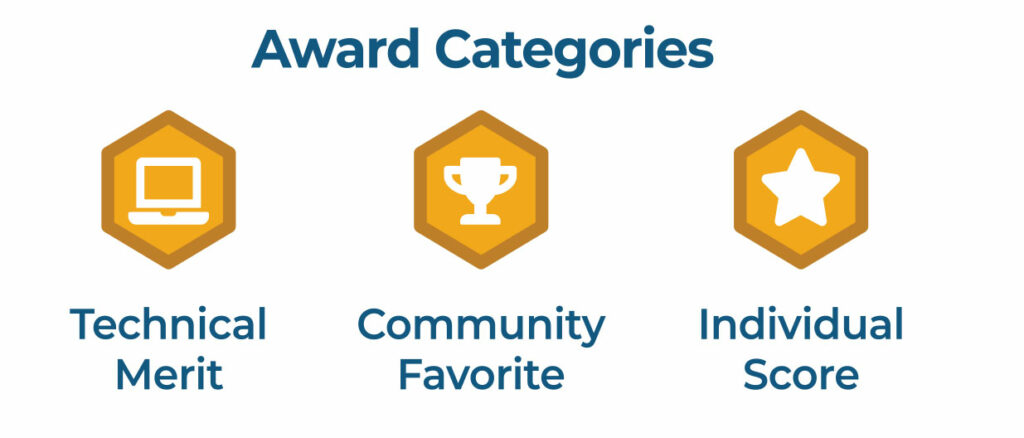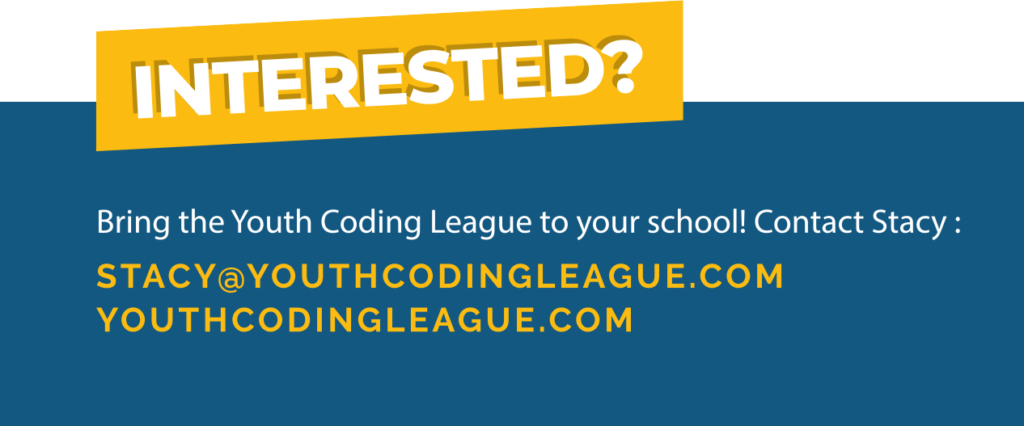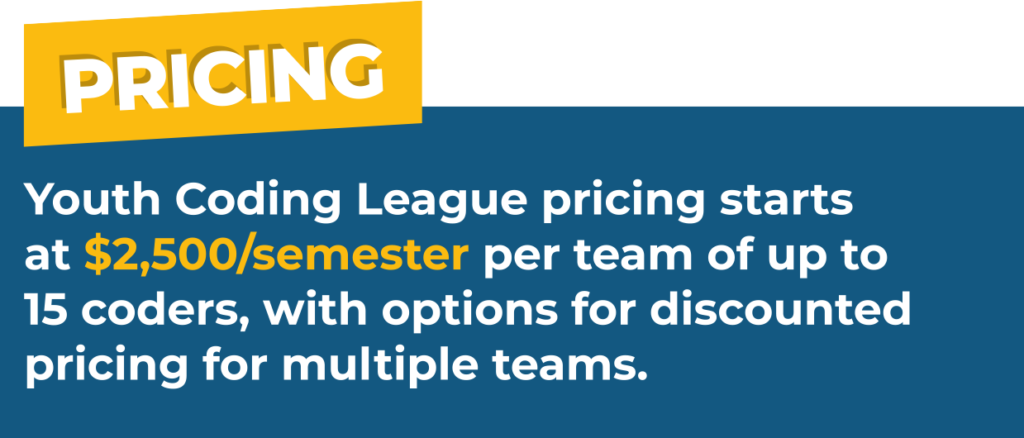
The Youth Coding League is a fully-packaged extracurricular program for grades 5-8 that introduces students to computer science in an innovative, project-based learning environment using a youth sports model that requires no coding skills to lead in schools or organizations.
For Students
- Team-based program similar to youth sports, with individualized/school points and rankings
- Gain social and intellectual confidence unlike anything before
- YCL team gear and a shot at big prizes in the postseason
- Introduction to the digital workplace of the future
For Teachers
- Paid stipend and continued training each semester to your teachers who are coaches
- Daily, dedicated support from Youth Coding League staff
- Incredibly easy-to-use coach dashboard to manage your team
- Opportunity for students to engage in project-based learning
For Schools
- Address the lack of teachers on staff with coding knowledge without putting so much more demand on them
- Join an accessible program that has diversity and inclusivity as a top priority
- Launch a unique STEM program (in less time than you think)
- 50% of program costs are invested back into your school
An Innovative, Project-Based Introduction To Computer Science Using A Youth Sports Model
How the Youth Coding League Works
No coding experience is required for you or your students, and this competitive program takes place in your schools with the full support of dedicated Youth Coding League staff.
Regular Season Competition
- The regular season is comprised of 8 sprints from Google's CS First curriculum.
- Coders earn up to 80 points per sprint, scored on intellect, reliability, collaboration, and more.
- Coders can complete Epics to sharpen their skills and earn badges.
- Coder profiles and team stats are updated weekly at YouthCodingleague.com by our scoring team.
Curriculum
Each semester, coders work through one of Google CS First’s seven themes during the regular season, comprised of eight sprints.
- Fashion & Design
- Game Design
- Music & Sound
- Friends
- Storytelling
- Sports
- Arts
Postseason Competition Series
- At the end of the regular season, coders group up and work on projects that represent everything they learn throughout the semester. The projects then enter the postseason competition series.
- Projects can win in two tracks: 1) Technical Merit, which are reviewed by professional software developers and based on coding proficiency, and/or 2) Community Favorite, which is based on voting from your school and community.
- The projects with the best coding proficiency or the most votes in each round move on to the next round until a winner is decided. Coders can continue refining their work throughout the playoffs to produce the best project possible.




